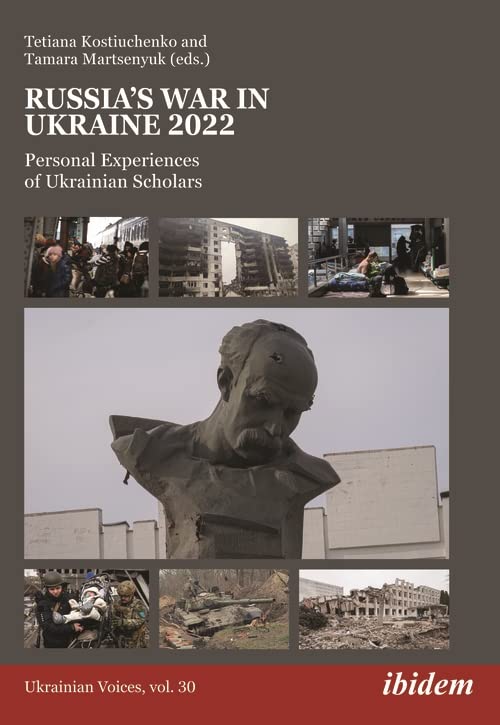
Russia’s War in Ukraine 2022: Personal Experiences of Ukrainian Scholars
Tamara Martsenyuk
Questions & Answers
The author's exploration of her Ukrainian heritage and family history significantly influences her perspective on the current political situation in Ukraine. By uncovering the complex interplay of Ukrainian nationalism, Russian imperialism, and the suffering of her ancestors, she gains a deeper understanding of the historical context. This understanding allows her to empathize with the current struggles of Ukrainians, recognizing the sacrifices made by her family and others in the past. The author's research also highlights the challenges of dealing with difficult historical chapters, which she sees as crucial for Ukraine's self-knowledge and development. This perspective informs her belief that defending one's country is more important than political agendas or personal survival, reflecting a strong sense of national identity and resilience in the face of Russian aggression.
Memory and silence are pivotal in the transmission of family history, especially in the context of the author's grandmother's experiences during the Soviet era and World War II. The grandmother's memories, often fragmented and difficult to access, serve as the foundation for understanding her past. Her silence, often due to trauma, shame, or the oppressive environment, creates gaps in the narrative, prompting the author to seek out additional sources and stories. This process of uncovering and interpreting memories and silences allows the author to piece together a complex and nuanced picture of her family's history, revealing the interplay of personal and historical events. The author's efforts to bridge the gaps in her grandmother's story also highlight the broader societal and political contexts that shaped their lives, emphasizing the importance of memory and silence in preserving and interpreting family and national histories.
The author navigates the complexities of Ukrainian nationalism by examining the historical context and the multifaceted nature of the movement. They acknowledge the alliances between Ukrainian nationalists and Nazi Germany during World War II, highlighting the radical factions' involvement in pogroms and collaboration with the Nazis. The author also delves into the broader context of Ukrainian nationalism, including its origins, goals, and the diverse responses of Ukrainians during the war. They critically analyze the role of the Organization of Ukrainian Nationalists (OUN) and its military arm, the Ukrainian Insurgent Army (UPA), and their strategies, which often prioritized Ukrainian independence over other considerations. By presenting a nuanced perspective, the author avoids simplifying the complex history and its moral implications.
The author's research delves into the complex historical and contemporary experiences of Ukrainian people, particularly under foreign occupation and authoritarian regimes. It highlights several broader implications:
-
Historical Complexity: The research underscores the intricate nature of Ukrainian history, revealing the country's struggle for independence and its involvement in various historical events, including World War II and the Soviet occupation. This complexity challenges simplistic narratives and encourages a nuanced understanding of Ukrainian history.
-
Occupation and Resistance: The author's exploration of Ukrainian experiences under foreign occupation, such as the Nazi and Soviet regimes, demonstrates the resilience and resistance of the Ukrainian people. It emphasizes the importance of understanding the diverse responses to occupation and the impact on individuals and communities.
-
Memory and Identity: The research emphasizes the role of memory and identity in shaping Ukrainian society. It shows how historical events have shaped the national narrative and influenced contemporary politics, including the decommunization policies and the revival of Ukrainian nationalism.
-
Authoritarian Regimes: The author's
The author's narrative significantly contributes to the discourse on preserving and acknowledging the complexities of history by illustrating the interconnectedness of past and present. By delving into her family's history, which includes experiences under Soviet rule, Nazi occupation, and the subsequent struggle for Ukrainian independence, the author highlights the multifaceted nature of historical events. This narrative underscores the importance of understanding the nuances of history, including the role of individual choices and societal contexts, which can shape complex historical outcomes. The author's exploration of her family's past, including the controversial figure of her great-uncle Stefan, underscores the need for a balanced and nuanced approach to history, especially in the context of the current conflict in Ukraine. It emphasizes that acknowledging the complexities of history is crucial for fostering a more informed and empathetic understanding of the present, which is essential for navigating the challenges of the future.